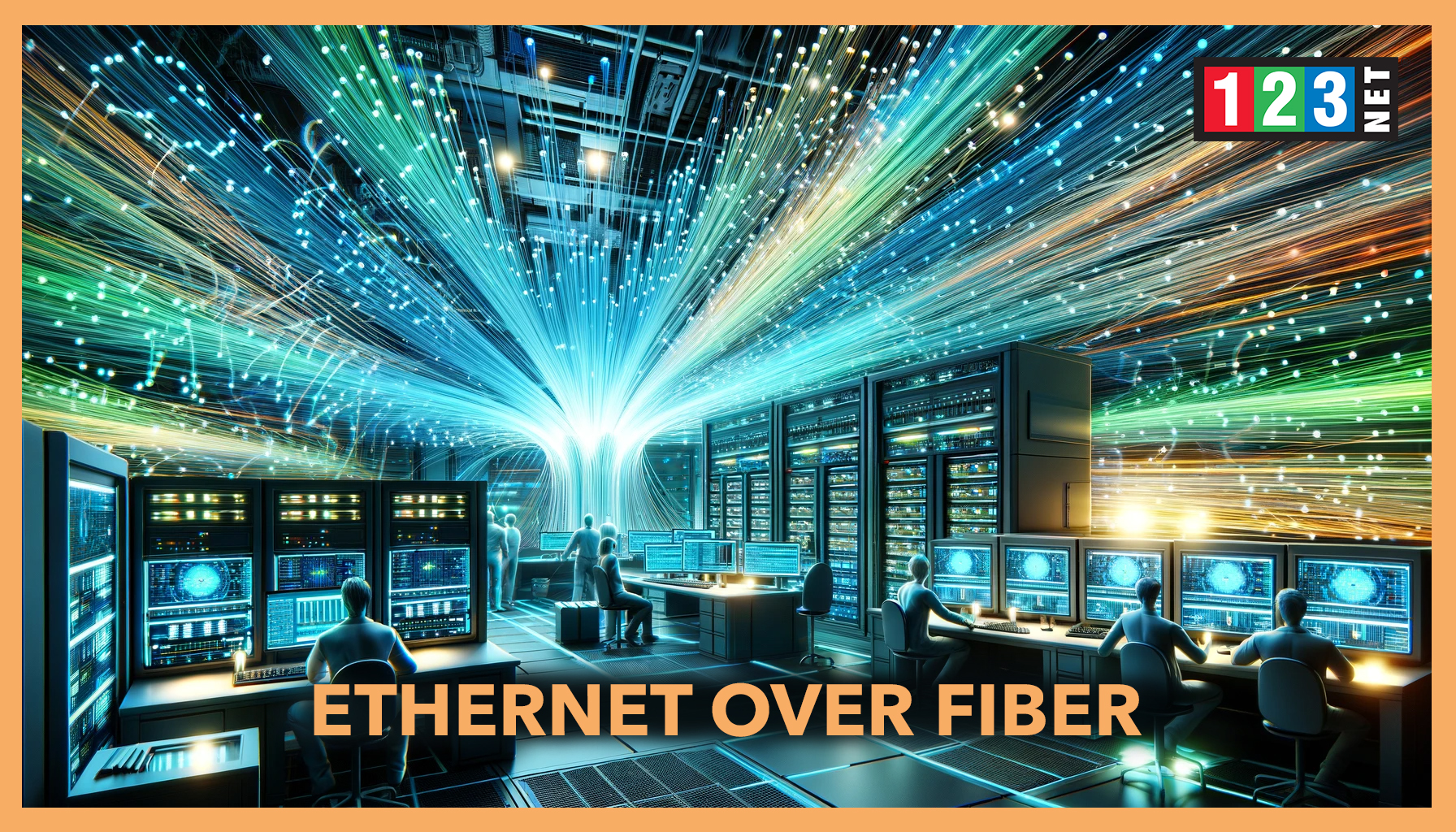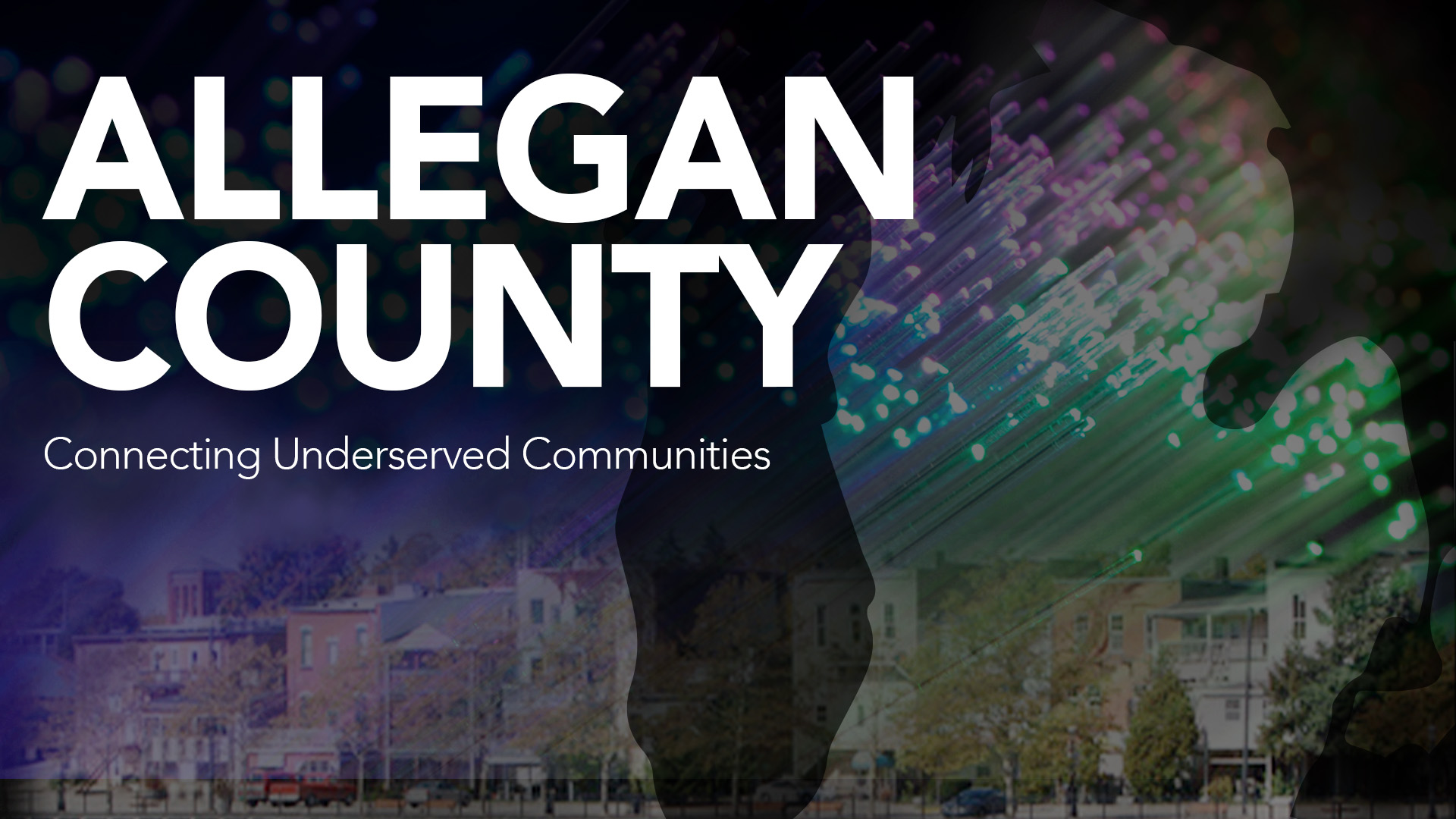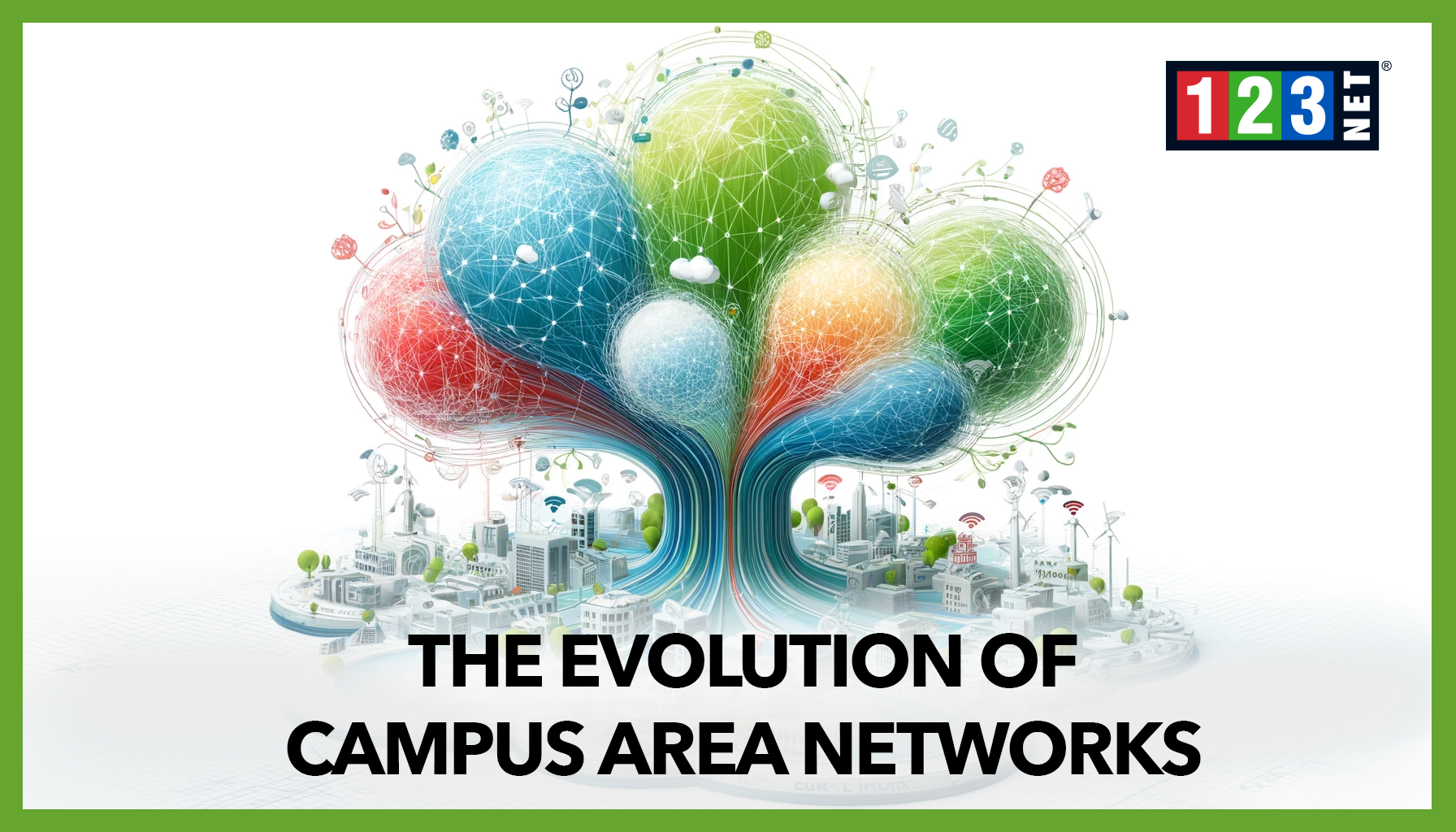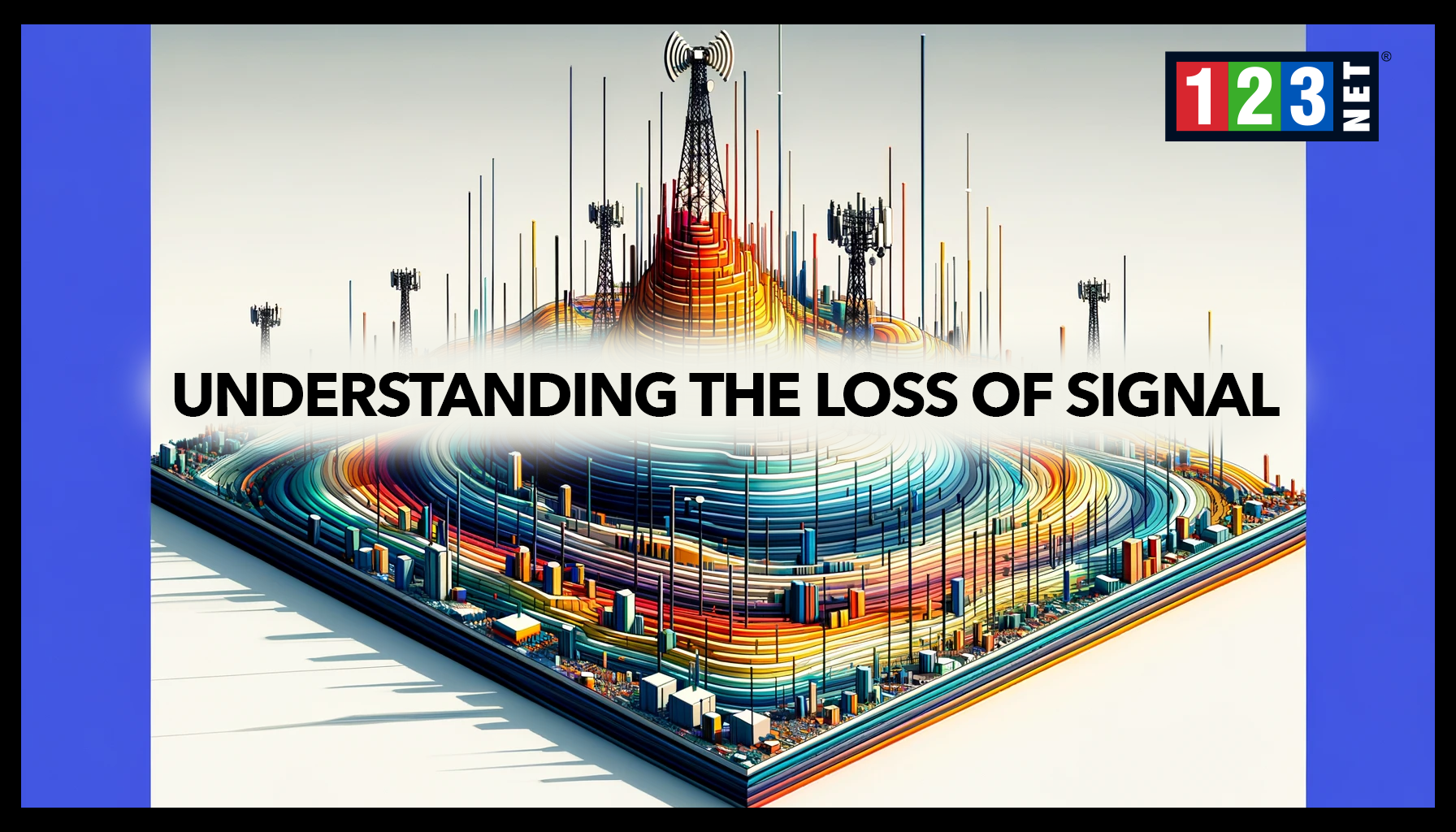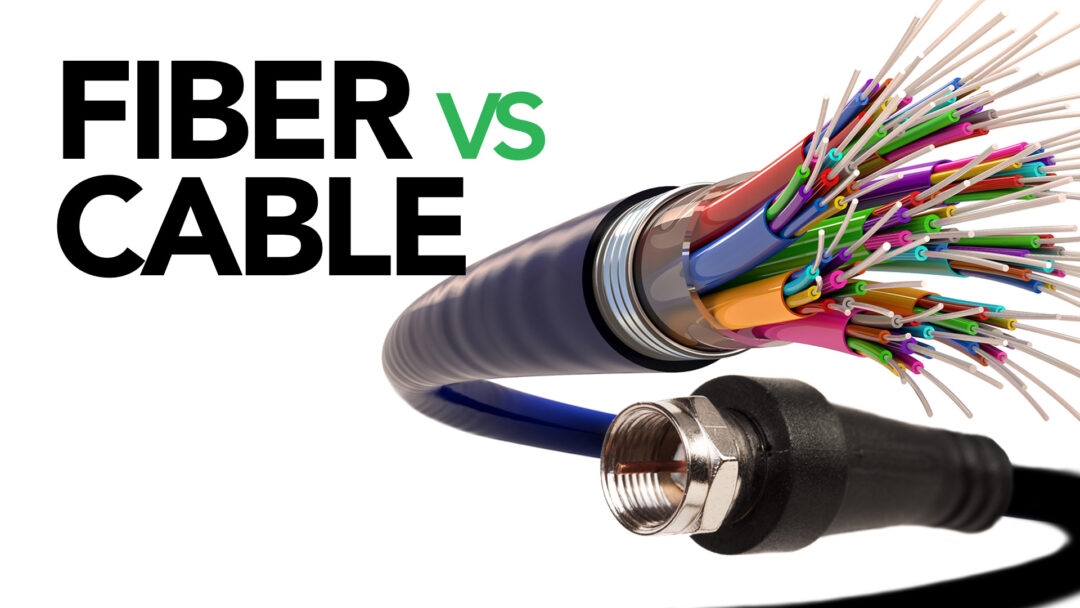
Overview
In broadband internet service, two primary technologies have become household names: coaxial cable (commonly referred to as ‘cable’) and fiber-optic cable (‘fiber’). Cable internet, which saw its first deployment in the 1990s, is now a staple in over 69 million U.S. homes. Fiber first started appearing in the mid-2000s but has seen significant growth in recent years due to its numerous advantages.
Understanding the Basics
Before diving into the differences between fiber and cable internet, it’s important to understand how each technology works. At its core, fiber consists of many small, flexible glass strands that utilize light’s physical properties to transport enormous amounts of data at high speeds over long distances. It achieves this by encoding data in light pulses sent down the fiber strands.
Cable, on the other hand, utilizes electrical signals to transmit data. The cable comprises a plastic jacket, a metallic shield, a dielectric insulator, and a copper core. This copper core carries the electrical signals that represent data from one end of the cable to the other.
Bandwidth, Speeds & Capacity: Fiber vs Cable
Fiber stands out as the superior bandwidth, speed, and capacity technology. Fiber’s dedicated connection bandwidth, true symmetrical speeds, and scalable capacity allow multiple users to access the network simultaneously without any limitations due to congestion. This means that regardless of how many people in your area use the internet, your fiber connection will remain fast and reliable.
On the other hand, the cable is a shared asymmetrical connection. This allocation of a bandwidth pool to several users can lead to congestion during peak usage times, potentially disrupting your internet performance caused by your neighbors’ internet activity. Cable internet speeds range from 10 Mbps to 1 Gbps and can vary depending on utilization rates by other subscribers in your area.
Physical Connection Characteristics
Regarding the physical characteristics of each technology, fiber, and cable have some key differences. Fiber includes an outer armor jacket for protection, a buffer tube to contain the fibers, glass cladding to help guide the light pulses and a glass core where the actual data transmission occurs. This construction empowers fiber with the high-speed data transmission it is renowned for while imparting robustness and durability to the physical connection.
On the other hand, cable comprises a plastic jacket for protection, a metallic shield to prevent signal interference, a dielectric insulator to separate the shield and the core, and a copper core that transmits data as electrical signals. While this construction works well for cable purposes, it doesn’t offer the same level of performance or durability as fiber.
Life Cycle and Long-Term Costs
One of the lesser-known advantages of fiber is its long life expectancy. Fiber has a life expectancy of over 25 years, making it a great investment for consumers in the long run. Additionally, fiber encounters fewer technical issues than cable, which can eliminate many repair costs over time.
Cable costs similar to fiber and must be replaced more often due to its shorter life. This could result in higher long-term costs for cable users, as they may need to replace their cable infrastructure more frequently than fiber users.
Security Concerns
In today’s digital age, security is a paramount concern for many internet users; this is another area where fiber shines. Fiber offers enhanced security over cable, primarily because it transmits data. The data is sent through light pulses over thin glass strands, making it much harder to intercept. On the other hand, cable, being a shared medium, transmits data through electrical signals. These signals are easier to tap into, making cable a less secure option.
The Impact on Businesses
Businesses, in particular, can benefit greatly from choosing fiber over cable. Fiber has become the preferred solution over the older coax cable technology. Previously, fiber was considered the more expensive transport medium, but it is now comparable to cable. This cost-effectiveness, combined with fiber’s numerous advantages, has made it a popular choice for businesses of all sizes.
Fiber’s glass composition allows it to withstand temperature fluctuations and severe weather conditions. Unlike cable, the glass utilized in fiber reduces the risk of fire and power outages since electricity is not being carried through it. This can be a significant advantage for businesses, as downtime due to internet outages can be costly and disruptive.
Furthermore, fiber offers flexible and reliable connectivity, which can greatly impact business productivity. A reliable internet connection is key to reaching customers, working with partners, or hosting virtual meetings. Fiber infrastructure supports growing businesses by easily scaling up their bandwidth and network capabilities based on their needs.
Finally, fiber is also the fastest, most reliable transport for the internet obtainable today. With over 4,500+ miles of fiber, 123NET has provided internet services across Michigan for over 25 years. Discover our Business Fiber Internet Services.
The Future of the Internet: Fiber and Beyond
As we look towards the future, it’s clear that fiber has a major role in internet service. With its superior speed, bandwidth, and security, fiber is positioned to become the standard for internet connectivity. Additionally, as the demand for high-speed, reliable internet continues to grow – especially in the era of remote work, online education, and streaming entertainment – fiber’s capabilities will only become more important.
Moreover, as technology advances, we can expect fiber to evolve. Fiber technology innovations could increase its speed and capacity even further, making it an even more powerful tool for connectivity.
In conclusion, while fiber and cable have their merits, it’s clear that fiber offers several significant advantages. Fiber outperforms cable in speed and bandwidth to security and longevity in almost every aspect. Whether you’re a business looking for reliable connectivity, or a consumer seeking the best internet experience, fiber is a fantastic choice.
While it’s important to consider all the factors when choosing between fiber and cable, the benefits of fiber make it a compelling option for most. So, if you’re considering upgrading your internet service, take a closer look at fiber – it could be the superior choice you’re looking for.
This guide compares fiber and cable internet, examining each technology’s strengths and weaknesses. However, the ultimate decision between fiber and cable will depend on your specific needs, location, and budget. As always, it’s important to research and consult an expert before deciding.
Contact 123NET today to learn more about fiber internet or obtain a quote. With over 25 years of experience providing internet services across Michigan, we’re here to help you decide and find the best internet solution for your needs.

